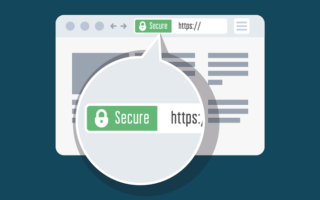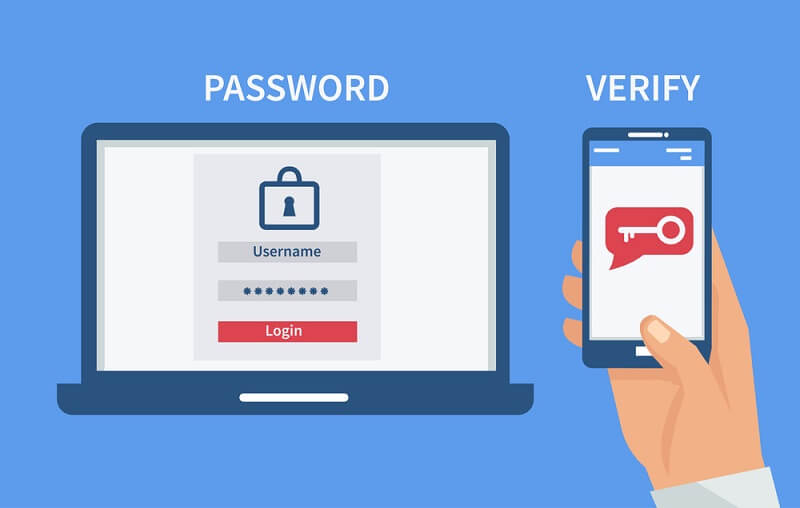SSL certificates are a useful thing for website security because it encrypts visitors’ sensitive information and develops a high level of trust.
But is it enough to indicate a complete website security? Of course not. There are so many existing threats that can lead you into the trap of cybercriminals and there are certainly many ways to attack a website even if you have an SSL certificate.
It is surely essential, but it is just a part of your overall website security. In this guide, I’ll be explaining to you why SSL is not enough for website security and what additional steps you can take to ensure your overall security of the website.
Contents
What is SSL?

SSL is a two-way encryption method that ensures that the two parties i.e. the one who is visiting the website and the website itself are the only ones communicating. This privacy is ensured by the neutral third-party which is referred to as the Certificate Authority (CA). The SSL certificate is acquired from the CA.
Whenever an individual accesses a certain website which is SSL encrypted, the visitor’s browser and the website shares a special encryption key with each other so that it cannot be read by anyone else.
Why SSL is ‘Not Enough’ for Website Security
If you’re under an impression that only by implementing SSL encryption your website becomes safe then you’re totally wrong. When SSL is implemented, your browser thinks that the website is safe and the ‘green lock’ icon appears at the side of the URL and ‘https’ appears at the start of the URL. This doesn’t make your website completely safe to use.
SSL encryption is great but it’s not enough. The data flowing from the visitor’s browser and the website is not the only way a cybercriminal can get hold of your sensitive information.
The SSL must be implemented on the entire website. Even if some content is missed or not covered by the encryption, it creates a security loophole. The browser would still show that the SSL is encrypted but in reality it won’t be encrypted at all. The other ways through which a hacker can get access to sensitive information is by MIME mis-matches, cross-site scripting, and clickjacking.
What Else is Needed?
To improve overall security of a website, you need to follow these instructions as well alongside SSL encryption:
1. Use a VPN for Security
Apart from everything that I’ll be listing here, make sure you always use a VPN on every device from where you operate your website. A VPN keeps malware and viruses at bay, so it will prevent your website from corruption and fall into the hands of hackers.
VPNs are not even expensive and they can be used on multiple devices at the same time. But if you’re low on budget or want to test it before you actually buy it then you can choose from this list of VPNs with free trial to make up your mind.
2. Use 2 Factor Authentication

Above the security layer of SSL encryption, you must use 2 Factor Authentication because it creates an extra layer of security. You can choose the login details for that and it can either be a secret question, a code, or a set of characters.
3. Use Strong Passwords
Make sure you always use a unique username and a strong password for the WordPress so that it shouldn’t be easy to hack your websites.
The password must be at least 20 characters long and contains mixed characters, special characters, and numeric.
It is not advisable to use easy passwords like the name of the city, your birth date, or your name.
4. Make Sure Plugins are Always Updated
If you have plugins and themes on your WordPress, make sure you keep them updated because hackers tend to love old plugins that aren’t updated.
You always need to update any software or any kind of plugins with your WordPress because it can leave a security loophole that can be easily exploited by hackers.
The security patch that should have been updated is now old enough to have loopholes that can be used against you. That is the reason why an update is released to either fix those issues or add a few additional features.
Even though free plugins are good, try using premium plugins because they come with clean code and fewer vulnerabilities.
5. Create a Backup
Try creating a backup of your website in case if a hacker releases a malware that corrupts all the pages of a website. It will help you restore all the pages as it were.
But it has to be done regularly.
You can create a backup of your website automatically through plugins, hosting provider, Cpanel, or you can do it manually through FTP client (File Transfer Protocol).
Key Takeaways
As you can tell by reading this guide, an SSL encryption is not enough to really know if a website is secure. You need other metrics to identify your website security and the steps to overcome any type of security vulnerabilities.
The most important aspect of your website security is the 2FA and the use of VPNs. These are the important tools that create an additional layer of security.



